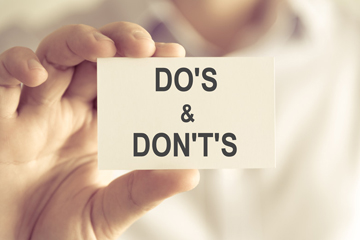
- Have a clear agenda: It is important that you don’t waste people’s time. For that, you need to have a clear agenda and stay on the path. Establish who’s leading the meeting, what needs to be discussed, and the goals you need to achieve. Draft a rough outline of what is going to be discussed and clearly communicate the agenda to the attendees so that they can come prepared. When the subject is focused and clear enough, you can stick to the time schedule.
- Documents: You cannot have a meaningful conference if the participants are not aware of the documents that need to be reviewed, discussed, or referenced on a call. So include important documents pertaining to contract negotiations or business deals in the meeting notice. Make sure that the attendees have time to review the documents in question.
- Be on time: Treat the conference call like any other meeting. Being late would be unprofessional. So make sure you arrive on time and are ready for the call.
- Introduce yourself and your colleagues: If you are leading the meeting, introduce yourself and your team, along with titles and issues to be addressed. Introducing yourself and exchanging pleasantries will set the tone for the call and make discussion easier. If a customer/client is participating, mention the product or service in question. And don’t forget to announce yourself when you speak.
- Pay attention and get others to do so too: A 2014 study by Intercall, more than 60 percent of the surveyed respondents admitted to doing other work or sending an email while on a conference call. Nothing can be more embarrassing if you were distracted and are asked a question. One of the reasons why people get distracted when they’re in a conference call is because they multitask. So put everything else on hold while you’re on the call and act like you’re in a face-to-face meeting.
- Use the mute button when necessary: Background noises can affect the quality of the conference call and drown out the person speaking. Use the mute button even if you are paying attention and just want to type notes as you listen. This will prevent others from hearing you type. Un-mute yourself when you want to speak.
- Don’t put the call on hold: If you need to step away, use the mute button. Putting the conference call on hold can be very distracting as the other participants would have to listen to the recorded music. Inform the others that you’re leaving. This will give them the chance to make final comments or ask any final questions. If you don’t announce that you’re leaving, people will continue the discussion assuming that you are there.
Turn off call waiting: It’s rude and distracting when a conversation is constantly interrupted by beeps and tones indicating that other calls are coming in. Deactivate call waiting when you’re in a conference call – other callers can leave a message or call back.
- Don’t interrupt others: Know when to speak and don’t talk over people. No one likes being interrupted. So pay attention to your cues to speak and choose your words well. You cannot judge the expressions and body language of other participants, and ambiguous language or voice tones can be confusing.
- Choose a quiet location and use the right equipment: Find a quiet place to join the call and ensure that you are not disturbed. Cellular or cordless phones can cause distracting noises. The best practice is to use a phone with a handset that is hard-wired into the phone lines. Test the equipment before the call to make sure it’s working well.
Using a recording device can capture and preserve information about conferences, discussions and phone calls in which you participate. A conference call transcription service provider can help you document what takes place. However, you should be aware of the State and Federal laws about recording of conference calls. From a legal standpoint, you need to get consent from one or all of the parties to a phone call or conversation before recording it. The best way to inform callers about this in advance is to include a standard message about call recording in the introduction of each of your conference calls.

 Turn off call waiting: It’s rude and distracting when a conversation is constantly interrupted by beeps and tones indicating that other calls are coming in. Deactivate call waiting when you’re in a conference call – other callers can leave a message or call back.
Turn off call waiting: It’s rude and distracting when a conversation is constantly interrupted by beeps and tones indicating that other calls are coming in. Deactivate call waiting when you’re in a conference call – other callers can leave a message or call back.

